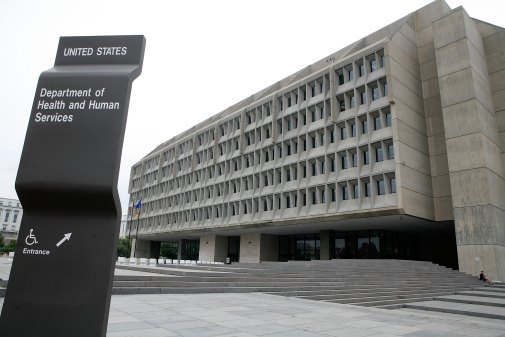
Medicare’s meaningful use, the program built to incentivize health care providers’ adoption of digital records, is being replaced by a more flexible, simplified system, officials say.
In a proposal released Wednesday, the Centers for Medicare and Medicaid Services introduced the Advancing Care Information program.
If finalized, the new ACI program would take effect Jan. 1, 2017, replacing meaningful use and moving “the emphasis away from the use of IT to one that supports patient care supported by better and more connected technology” — one that’s “far simpler, less burdensome and more flexible,” CMS acting Administrator Andy Slavitt told reporters.
The proposal has been cautiously welcomed by doctors’ groups.
Under ACI, providers will select the measures for evaluation that best reflect how technology fits their care practices, removing the all-or-nothing scale central to meeting meaningful use. In all, ACI focuses more on patient care, and enhanced connectivity and interoperability by aligning closely with the Office of the National Coordinator for Health Information Technology’s 2015 Health IT Certification Criteria, which pushed for greater use of APIs.
While meaningful use ushered in an era of pervasive electronic health records, or EHRs, by incentivizing providers who before, in many cases, did not have the capital to adopt them, Slavitt said that clinicians were beginning to feel too restricted by the 5-year-old program.
After conducting eight focus groups in different cities, Slavitt discovered that in addition to “a principal frustration” of lacking any requirement for interoperability between providers, meaningful use regulations were too inflexible.
The rules “really required [doctors and other providers] to spend time at a keyboard instead of enabling care,” he said. “In many respects, they wanted to use technology for other purposes but found that the purposes of the meaningful use program often times required a one-size-fits-all approach. And quite frankly it was burdensome.”
Additionally, many physicians felt the technology required under the program “wasn’t intuitive,” Slavitt said. “It didn’t really meet them with the way they wanted to work in their offices, and it required them to adjust the way they interacted based on how the technology worked.”
The new program is also a win for developers, Slavitt said. “We urge developers and the technology community to take advantage of the proposed flexible regulations when they’re ultimately finalized so they can design around the everyday needs of users, rather than designing to a one-size-fits-all regulated approach.”
“We’ve taken this opportunity to focus more on aligning quality on seeing that we’re streamlining workflow and creating opportunities for electronic health record and health IT developers to create products that really meet the needs and expectations of clinicians and providers on the front lines,” said Karen DeSalvo, National Coordinator for Health IT.
Under the proposal, the ACI program will reside under the Merit-based Payment System as part of the implementation of the Medicare Access and CHIP Reauthorization Act of 2015 — a Medicarewide overhaul that sought more emphasis on quality of care rather than volume.
Responses to the proposal are still trickling in, but some powerful voices in the health care industry have already come out in favor of the move to the Advancing Care Information program.
“Our initial review suggests that CMS has been listening to physicians’ concerns. In particular, it appears that CMS has made significant improvements by recasting the EHR Meaningful Use program and by reducing quality reporting burdens,” Steven Stack, president of the American Medical Association said in a statement.
In March, the American Hospital Association championed for just this sort of change.
“On behalf of our nearly 5,000 member hospitals, health systems and other health care organizations, and our 43,000 individual members, the American Hospital Association (AHA) encourages the Centers for Medicare & Medicaid Services (CMS) to consider eliminating its ‘all-or-nothing approach’ to meaningful use of electronic health records (EHRs),” Ashley Thompson, senior vice president of public policy analysis and development for AHA, wrote then in a letter to CMS.
“Under this approach, failure to meet any one of the requirements under the Medicare and Medicaid EHR Incentive Programs has meant a provider would not receive an incentive payment; more recently, it has meant a provider would be penalized.”
Meaningful use hasn’t completely reached it’s end, however. Medicaid will continue to use the program. Likewise, the ACI program will only affect physicians offices, not Medicare hospitals.
“We are already meeting with hospitals to discuss potential opportunities to align the programs to best serve clinicians and patients, and will be engaging with Medicaid stakeholders as well,” Slavitt wrote in a blog post.
The proposal will be open to public comment for 60 days.






